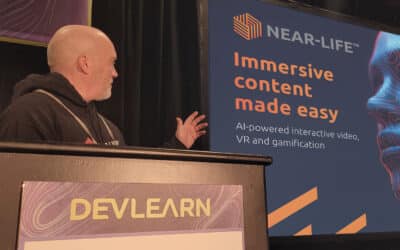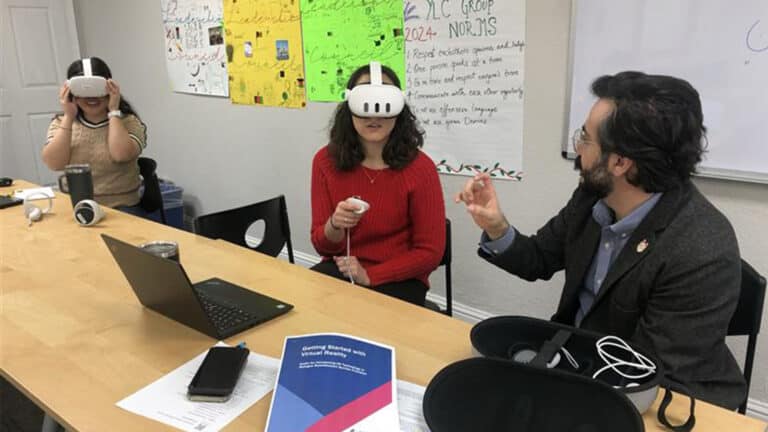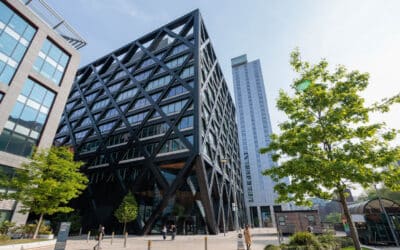The New York-based International Rescue Committee has been working with Near-Life’s immersive content platform as part of a US resettlement program.
The IRC, which is led by former UK Foreign Secretary David Miliband is using the North West software to enhance its cultural orientation program with immersive VR simulations that allow refugees to experience real-world scenarios in a low-pressure, self-paced environment.
The modules cover essential aspects of resettlement, including navigating public transportation, visiting a doctor’s office, understanding financial systems, and adapting to American school environments.
The project was created in collaboration with the University of Utah’s College of Architecture and Planning and MIT’s Open Documentary Lab.
Initially piloted at the IRC’s Salt Lake City office, the project has now expanded nationally through Switchboard: a project providing technical and training assistance to refugee service providers across the U.S.
READ MORE – Near-Life debuts generative AI function at tech event
“Near-Life’s origins are in humanitarian response and it’s an area we’ve continued to engage with,” said Near-Life founder Mike Todd.
“It’s fantastic to be able to play a small part in supporting the pioneering work of IRC and the University of Utah – and to see them use our authoring tool in such original and creative ways.”
Hundreds of people are now received VR-based support via content built using Near-Life’s interactive authoring tool.
Former refugees worked alongside university design students and resettlement experts to shape content, ensuring that the VR scenarios created in Near-Life reflected real-world challenges and community needs.
“We’ve seen a fantastic response from our immersive content work. It’s really got people engaged,” said IRC project lead Krysti Nellermore.
“The plan now is to build on our success and use Near-Life’s content creation tool to expand our interactive content library and capitalise on the positive feedback received so far.”












